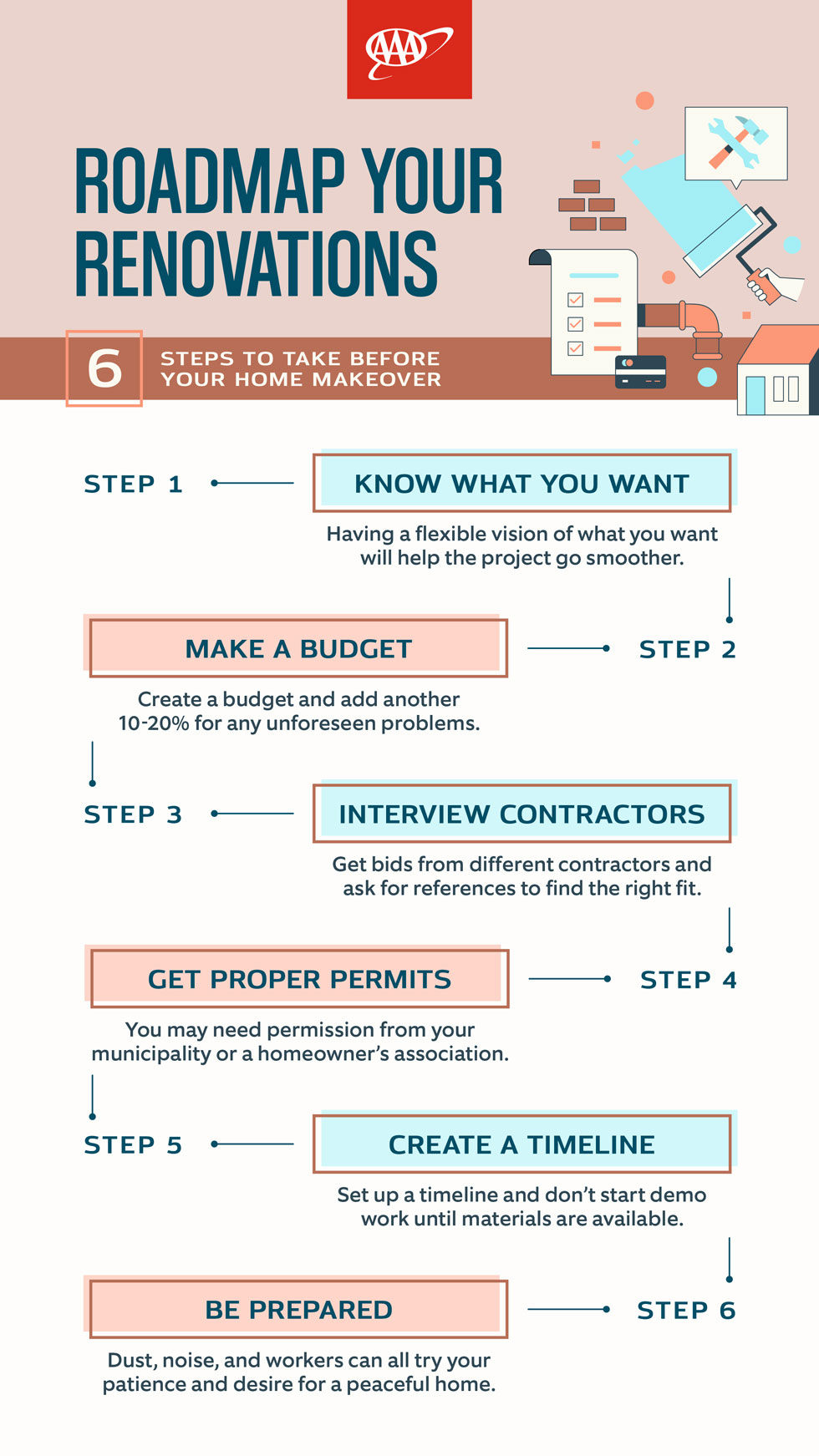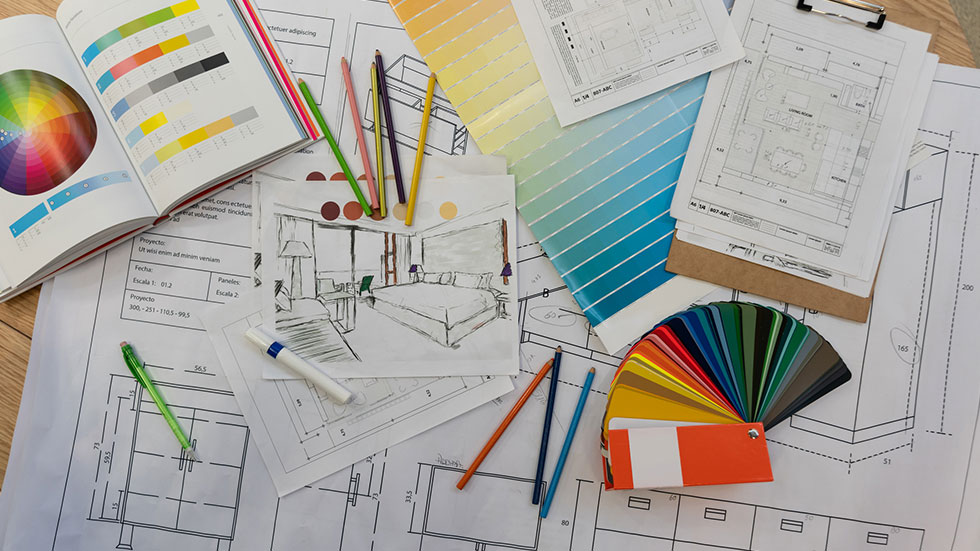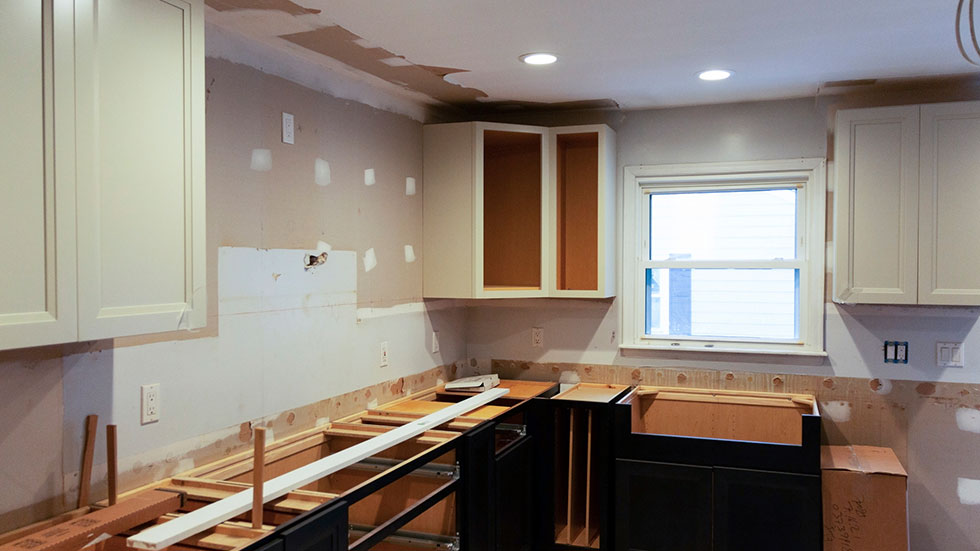7 Steps To Take Before Starting A Home Renovation
7 improvements for a more-expensive, upscale vibe—plus a few shopping tips


With interest rates rising, many people have decided to improve their existing abode rather than move. But while renovations can increase a property’s value and aesthetics, they can also present challenges. Planning can reduce stress and help prevent future problems.

1. DETERMINE YOUR GOALS
The extent of the renovation often depends on the current condition of the space(s) and whether you plan to stay in the house for five years or 25 years.
For instance, if you're planning to accommodate a growing brood, you may wish to expand the kitchen to an adjoining family room. Or, if you're planning to list the house in the next few years, new countertops, fresh paint, and updated fixtures may suffice.
Indeed, there’s truth in the adage that it doesn’t pay to have the nicest house in the community. It’s hard to get a return on investment if home values in your area are significantly lower than yours. That said, certain renovations, such as a kitchen makeover, can reap rewards.
“Knowing which renovations are a good return on investment can help you make informed decisions,” says Davin Eberhardt, a home designer, remodeler, and founder of Nature of Home, a home improvement website. He recommends choosing finishes and products that won’t look dated. (Case in point: avocado- or tangerine-colored appliances.)

2. KNOW WHAT YOU WANT
Your vision may change as you move forward, but it helps to have an idea of how you’d like the space to look. Peruse websites and magazines to refine your design or work with a professional designer.
Take the original architecture into account, Eberhardt says. Upholding the design’s overall integrity will typically help when it’s time to sell.

3. CREATE A BUDGET
Your goals and budget should align, and you may need to change one to match the other. Look for hidden costs in the project. For instance, structural changes can increase renovation costs in more ways than one.
“There can be nasty hidden surprises behind walls and floors,” notes Teri Simone, head of design and marketing at Niu Cabinet Doors and an expert at handling renovation projects. “It’s important to know the location of all the utilities and the cost of moving them if needed.” If you’re removing a wall to create an open floor plan, she says, hire an architect or engineer to evaluate the need for support columns and beams.
Those on a tight budget can focus on the “must haves” and create a wish list. For example, refacing the cabinets instead of replacing them gives you more money for countertops. Or, you can use old appliances as placeholders until you build back your budget to buy new ones, Simone says.
When you do buy appliances, make sure they have solid warranties, she suggests. Similarly, Eberhardt recommends installing energy-efficient upgrades in any renovation project, from new windows to upgrading insulation.
Simone says whatever the budget, build in a contingency of at least 10% and up to 20% on a complete kitchen remodel.

4. INTERVIEW CONTRACTORS
Hire a general contractor if you don’t want to manage the project. What’s the advantage? General contractors have relationships with all the craftspeople needed to do the job, so your hiring effort is "one and done." Depending on the project’s scope, you may only need one or two contractors. Or you may prefer to hire your own electrician, plumber, or cabinetmaker.
Either way, get bids from several professionals, and ask contractors if the cost includes labor and materials, Simone says. If that is the case, remember to ask about any markups. “You want to be sure what you’re paying is fair and competitive,” she says.
Don’t forget to ask for references, a business license, and a certificate of insurance.
5. SECURE THE PROPER PERMITS
You may need permission from your municipality or if applicable, a homeowner’s association.

6. CREATE A TIMELINE
Sit down with your contractors and schedule timeframes for the arrival of materials and the labor. You don’t want demo work to start unless the materials for the next step are available. Also, plan for the replacement of damaged materials and shipping delays.
7. BE PREPARED
Home renovations are intrusive in a variety of ways. For instance, there will be dust, noise, and workers walking through your home. Ask contractors how much they clean up at the end of each day, and if they have plans to mitigate the mess.
“Have a healthy dose of patience,” Simone says. “If things go wrong…remember to take a deep breath, reset, and reevaluate. Don’t agree to surprise costs without thinking them over or discussing them, and it never hurts to ask for a second opinion.”
